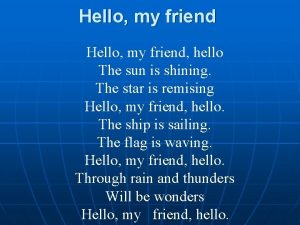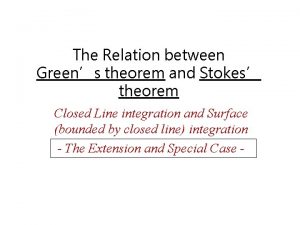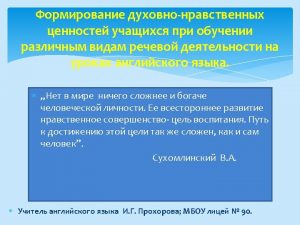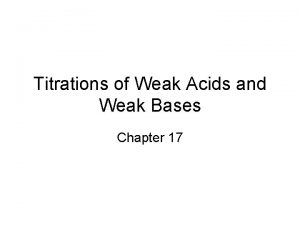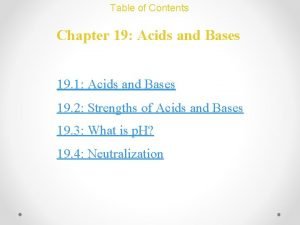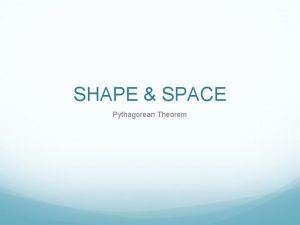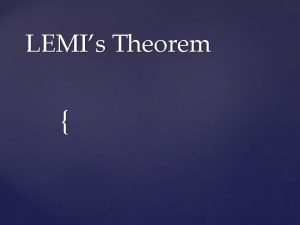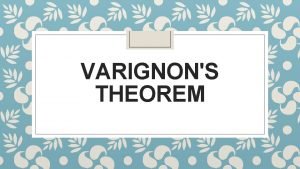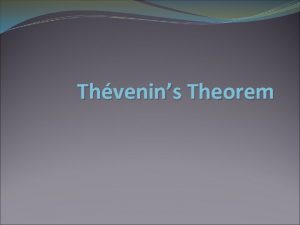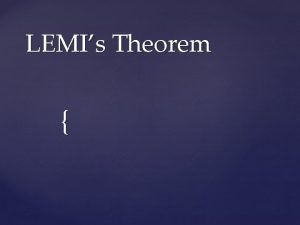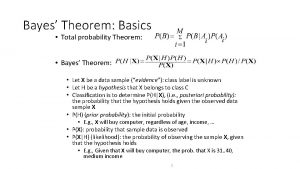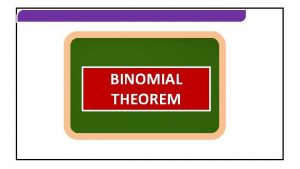A strong nogo theorem on the Wigners friend











- Slides: 11

A strong no-go theorem on the Wigner's friend paradox KOK WEI BONG, ANÍBAL UTRERAS-ALARCÓN, ET AL. CENTRE FOR QUANTUM COMPUTATION AND COMMUNICATION TECHNOLOGY (AUSTRALIAN RESEARCH COUNCIL), CENTRE FOR QUANTUM DYNAMICS, GRIFFITH UNIVERSITY, BRISBANE, QUEENSLAND, AUSTRALIA PRESENTED BY ANDREI VASENIN FOR LAQS'S JOURNAL CLUB, MIPT, 10 SEPTEMBER 2020

Outline of the seminar 1. The Wigner's friend paradox and the measurement problem 2. Extended Wigner's friend scenario (EWFS) 3. 'Local Friendliness' assumptions and inequalities 4. Theorem 5. Experimental setup 6. Results 7. Discussion

Wigner's friend gedankenexperiment Initially Collapse theory, mixed state

The paradox and the measurement problem The measurement problem Probability Relative-State QM Standard QM P 1 1 1/2 P 2 0 1/2 In what is called standard quantum mechanics, the measurement-update rule, commonly associated with a collapse, is a break with the otherwise unitary evolution governed by the Schrödinger equation. The formalism, however, provides no indication about when to apply this rule: It does not state what qualifies some interactions as measurements but not others.

Extened Wigner's friend scenario 1. Charlie and Debbie each have one particle from an entangled pair, and make a measurement on it, yielding outcomes c and d, respectively. 2. In each iteration of the experiment, Alice and Bob randomly and independently choose one out of N ≥ 2 measurements to be performed 3. if x = 1, Alice simply opens Charlie’s laboratory and directly asks him for his outcome c 4. For x ∈ {2, …, N}, Alice performs a different measurement on Charlie’s laboratory as a whole

"Local Friendliness" assumptions Assumption 1 (Absoluteness of Observed Events (AOE)): An observed event is a real single event, and not relative to anything or anyone. Assumption 2 (No-Superdeterminism (NSD)): Any set of events on a space-like hypersurface is uncorrelated with any set of freely chosen actions subsequent to that space-like hypersurface. Assumption 3 (Locality (L)): The probability of an observable event e is unchanged by conditioning on a space-like-separated free choice z, even if it is already conditioned on other events not in the future light-cone of z.

Theorem If a superobserver can perform arbitrary quantum operations on an observer and its environment, then no physical theory can satisfy Local Friendliness By a ‘physical theory’ we mean any theory that correctly predicts the correlations between the outcomes observed by the superobservers Alice and Bob

Experimental setup

Results The quantum state that violates inequalities

Discussion • A fully convincing demonstration would require a strong justification for the attribution of a ‘fact’ to the friend’s measurement. This, of course, depends on what counts as an ‘observer’ (and as a ‘measurement’) • an open possibility is that the LF assumptions are valid, but that nature forever forbids the observation of violation of LF inequalities with observers • A challenge to the above resolution of the LF no-go theorem could come from experiments involving AI (artificial intelligence) agents in a quantum computer • Among interpretations of quantum mechanics that allow, in principle, the violation of LF inequalities, Theorem can be accommodated in different ways. Interpretations that reject AOE include QBism, the relational interpretation and the many-worlds interpretation

Thx.
 Hello the sun is shining
Hello the sun is shining Hello my future
Hello my future Be strong be strong be strong in the lord
Be strong be strong be strong in the lord Stokes theorem examples
Stokes theorem examples A good friend must
A good friend must Foaf a matic
Foaf a matic A friend in needs a friend indeed
A friend in needs a friend indeed I've found a friend oh such a friend
I've found a friend oh such a friend Reading a titration curve
Reading a titration curve Strong acid strong base titration
Strong acid strong base titration Strong acid examples
Strong acid examples Strong acid and strong base titration curve
Strong acid and strong base titration curve
